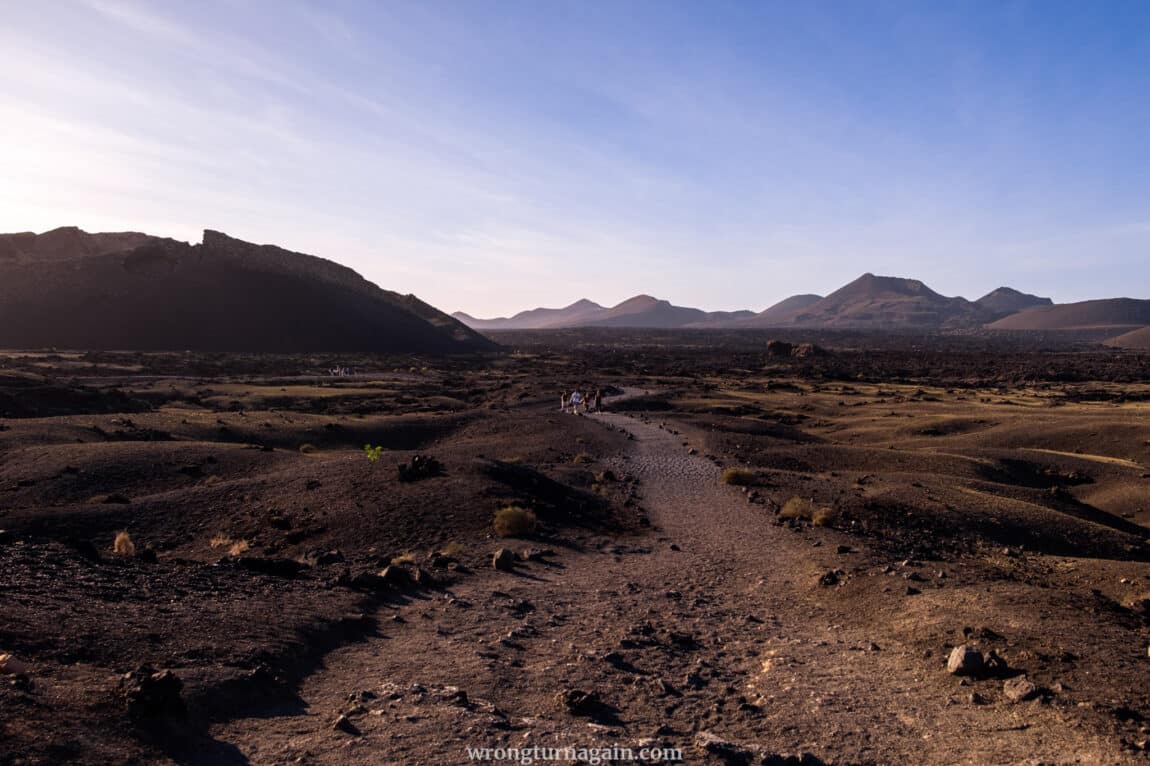
In the volcanic realm of Lanzarote, where lava has left its indelible mark on the landscape and history, one activity reigns supreme: trekking to its majestic volcanoes. But if hiking isn’t your cup of tea and you seek an easy, family-friendly stroll suitable for all fitness levels, look no further. Visit Caldera de los Cuervos—a captivating volcano accessible to all. What else sets it apart? The opportunity to simply walk into its crater, courtesy of a side broken open by ancient lava flows.
Join us as we uncover all you need to know about exploring Caldera de los Cuervos!

About Caldera de los Cuervos
Originally known as Montaña de las Lapas (Mountain of Limpets) due to its shape resembling the marine creatures clinging to rocks along the coast, this volcano is now called Volcán del Cuervo (Raven’s Volcano). Its distinctive sharp-edged crater rim, visible from a distance, defines the striking appearance of the volcano, towering at a height of 1,273 feet (388 meters).

Interesting Fact: Volcán del Cuervo emerged as the inaugural volcano during the eruptions spanning from 1730 to 1736. Initially, it harbored a vast lava lake within its crater. However, as the pressure of the lava intensified, the crater wall succumbed, leading to a collapse that allowed the lava to spill onto the plain below. This event created the opening that now welcomes visitors to explore the caldera and stand within the heart of what was once a seething lava lake.
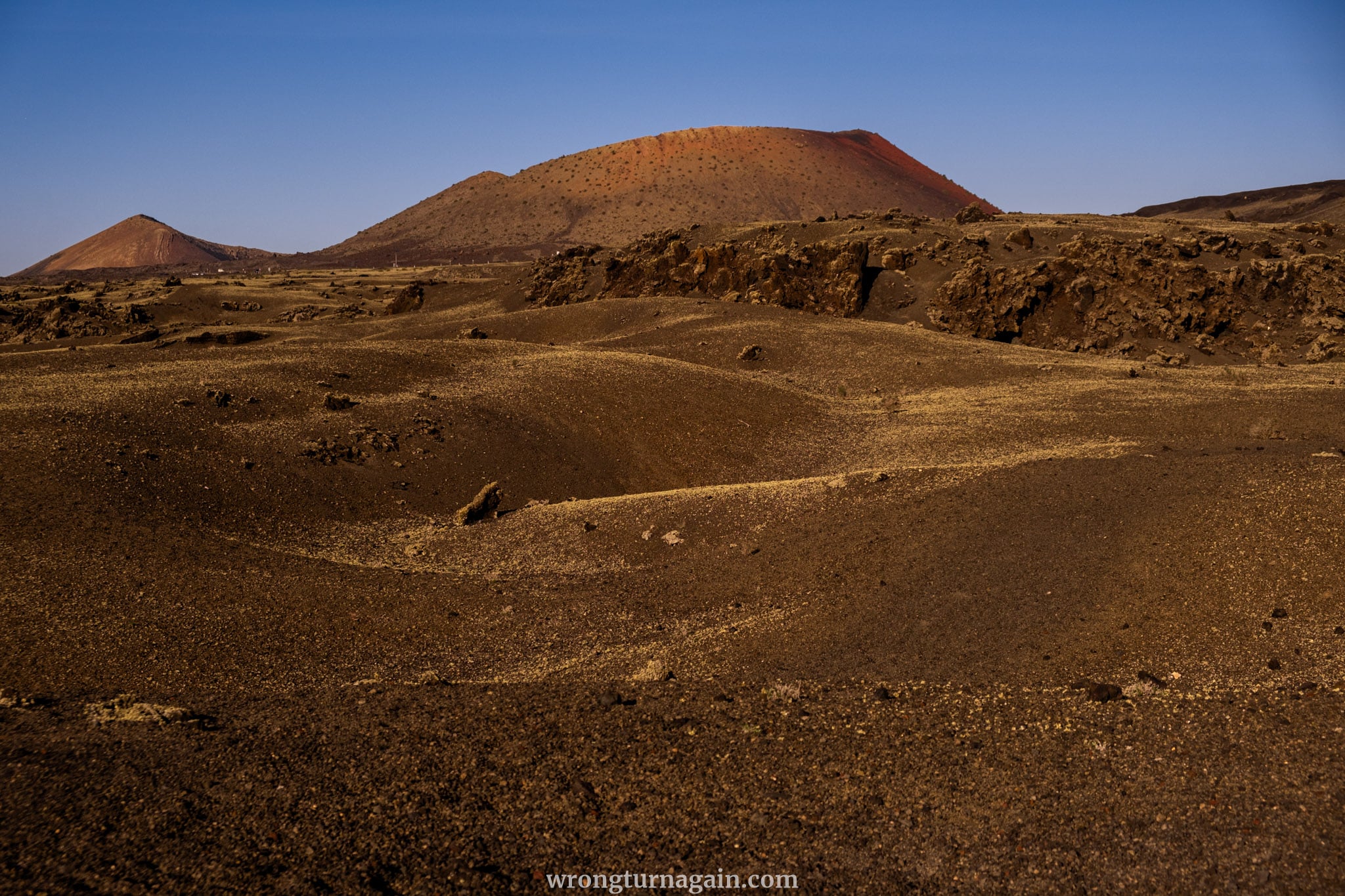
Offering a glimpse into Lanzarote’s rich geological heritage, Volcán del Cuervo showcases various basalt rocks and lava bombs infused with olivine—a green, semi-precious crystal often used in jewelry. The terrain combines gravel with lava fields, volcanic cones, and gentle slopes, providing a diverse and captivating landscape to explore.

Nestled within the Park of the Volcanoes, Caldera de los Cuervos is surrounded by neighboring volcanoes like Caldera Colorada and Montaña Negra. This makes it a perfect hub for further exploration and hiking adventures!
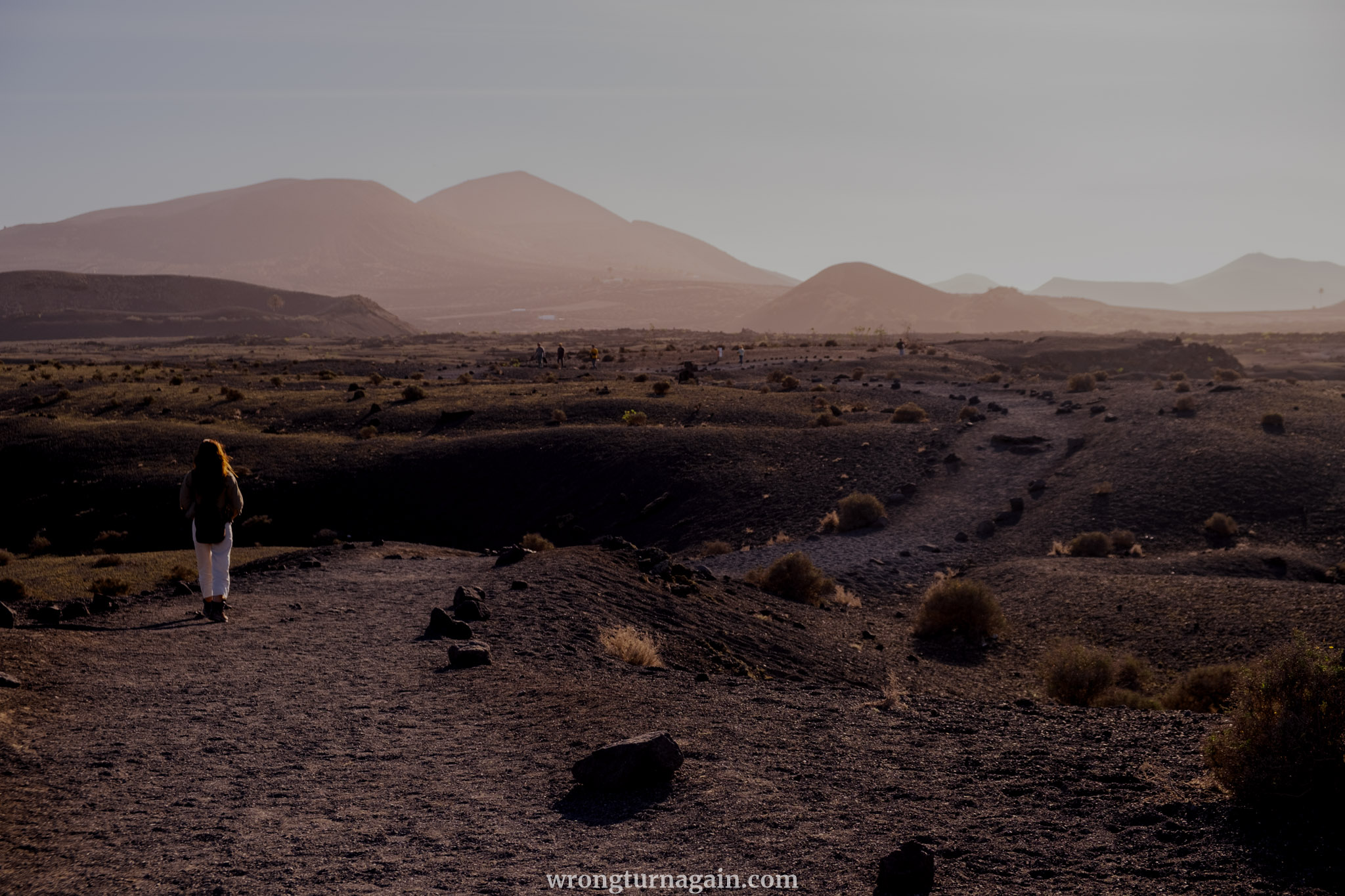

Hike Overview
The visit to Caldera de los Cuervos is an easy stroll that follows a straightforward and brief circular path along lava trails. While it may not fit the typical criteria of a hike, it is nevertheless worth experiencing, especially for the unique opportunity to explore the interior of the crater.
The starting point for this walk is conveniently located at the parking lot, from where a well-maintained gravel pathway guides you to the base of the cone in roughly 15 to 20 minutes. Once at the base, follow the volcanic nature trail encircling the volcano in either a clockwise or anti-clockwise direction, ensuring to pass through the gap into the crater itself.
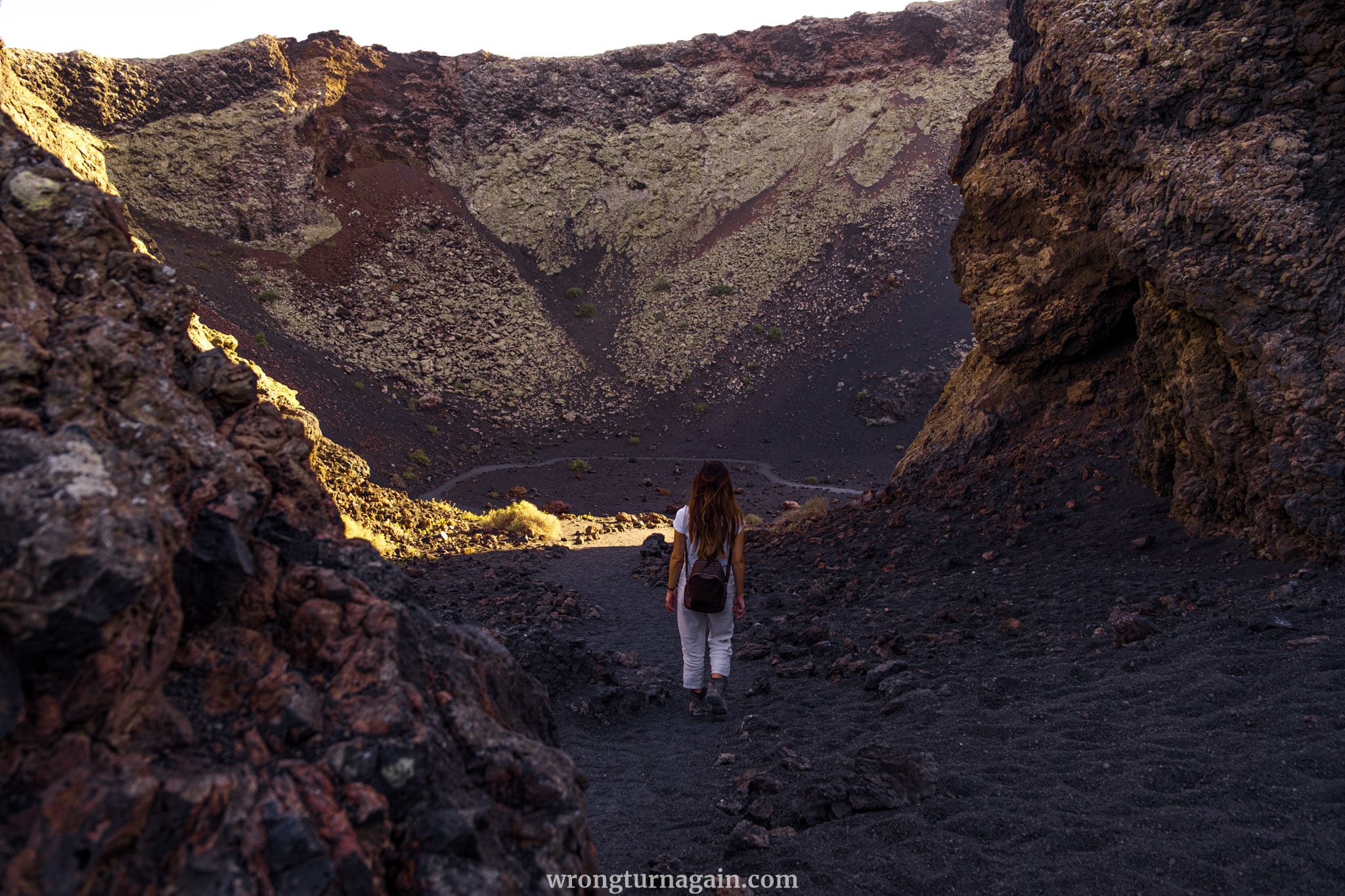
The trail is easy to follow, with no risk of getting lost, thanks to clear markers along the way. You’ll also find several information boards along the track, one providing a clear map of the circular route.

Allowing time for leisurely exploration and photo opportunities, walking around the volcano’s base and into the crater typically takes about an hour. However, if you opt for the direct route to the volcano crater, it can be completed in just 20 minutes.

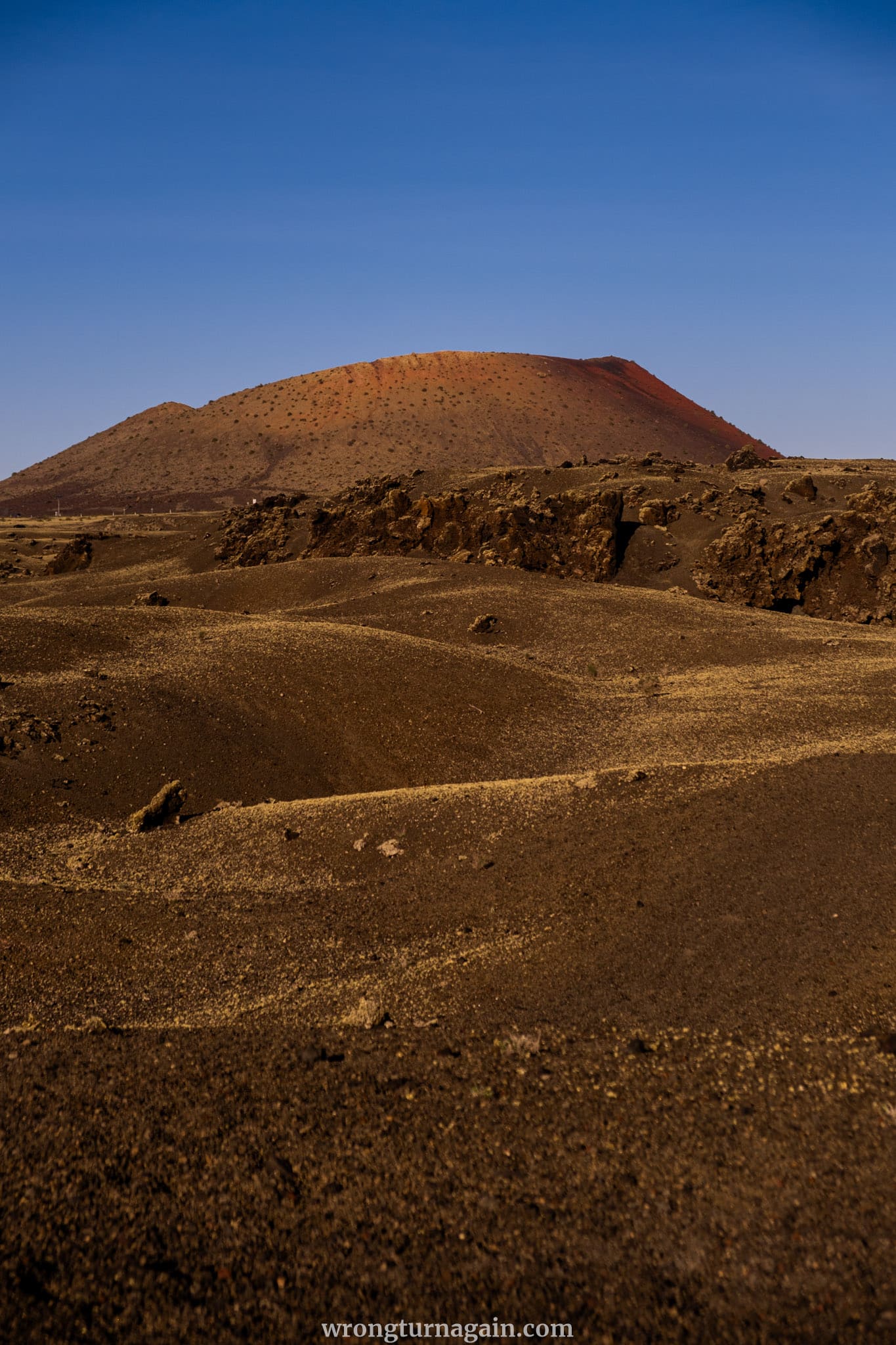
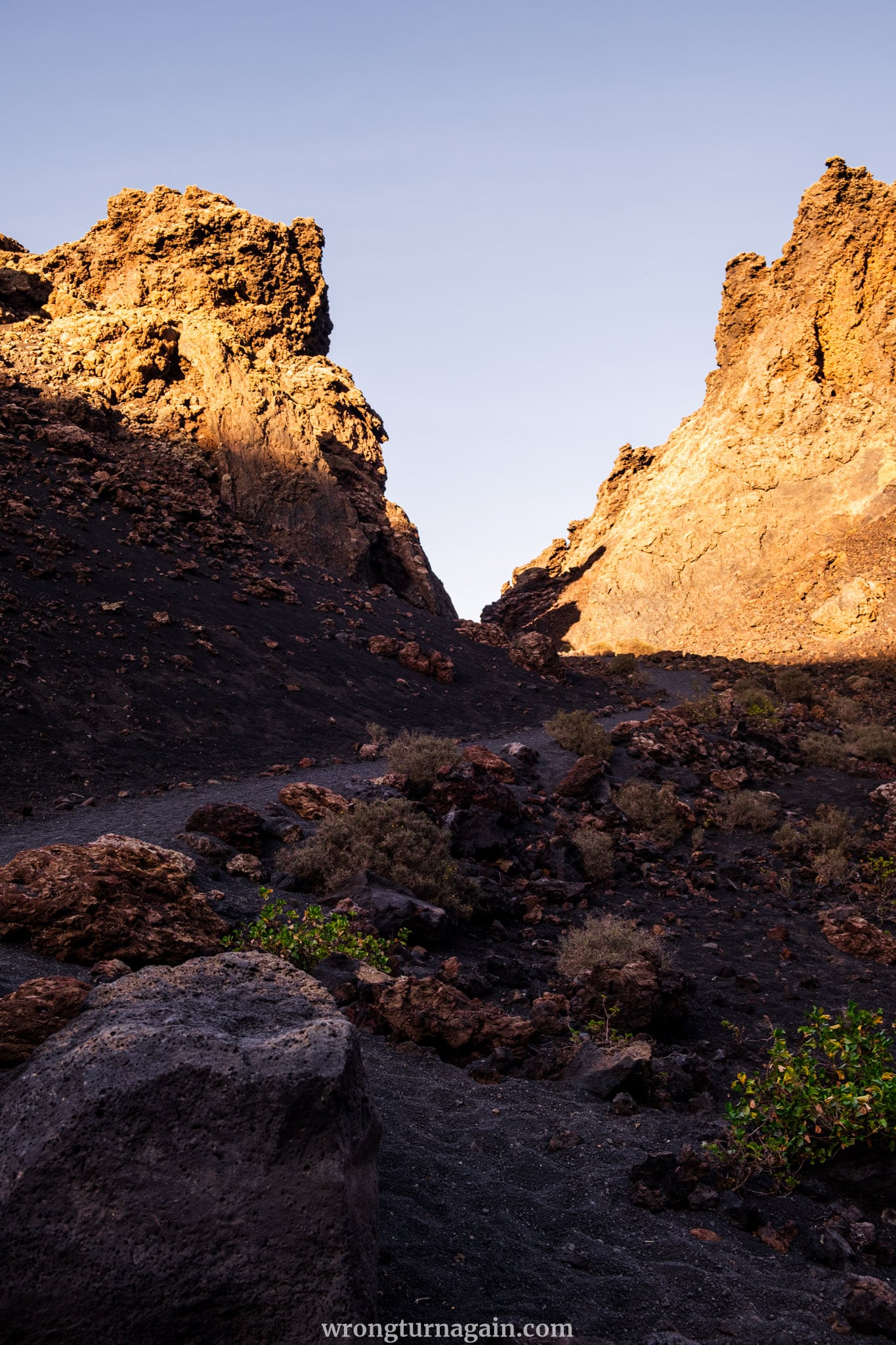
The Hike
Section 1 – Getting to the Trailhead
Embarking on the adventure to Caldera de los Cuervos begins with navigating to the trailhead, a straightforward journey for those with their own means of transportation. Whether you prefer the freedom of a bike, the agility of a motorcycle, or the comfort of a car, having wheels at your disposal is key, as public transportation doesn’t extend to this remote locale.
To kick off your journey, head towards the southwest-central region of Lanzarote. Between Masdache and Uga, veer off the LZ-30 onto the LZ-56 towards Tinajo. Approximately 1 kilometer into your drive, a distinguishing wall signals your arrival at the municipal boundary of the Municipio de Tías.
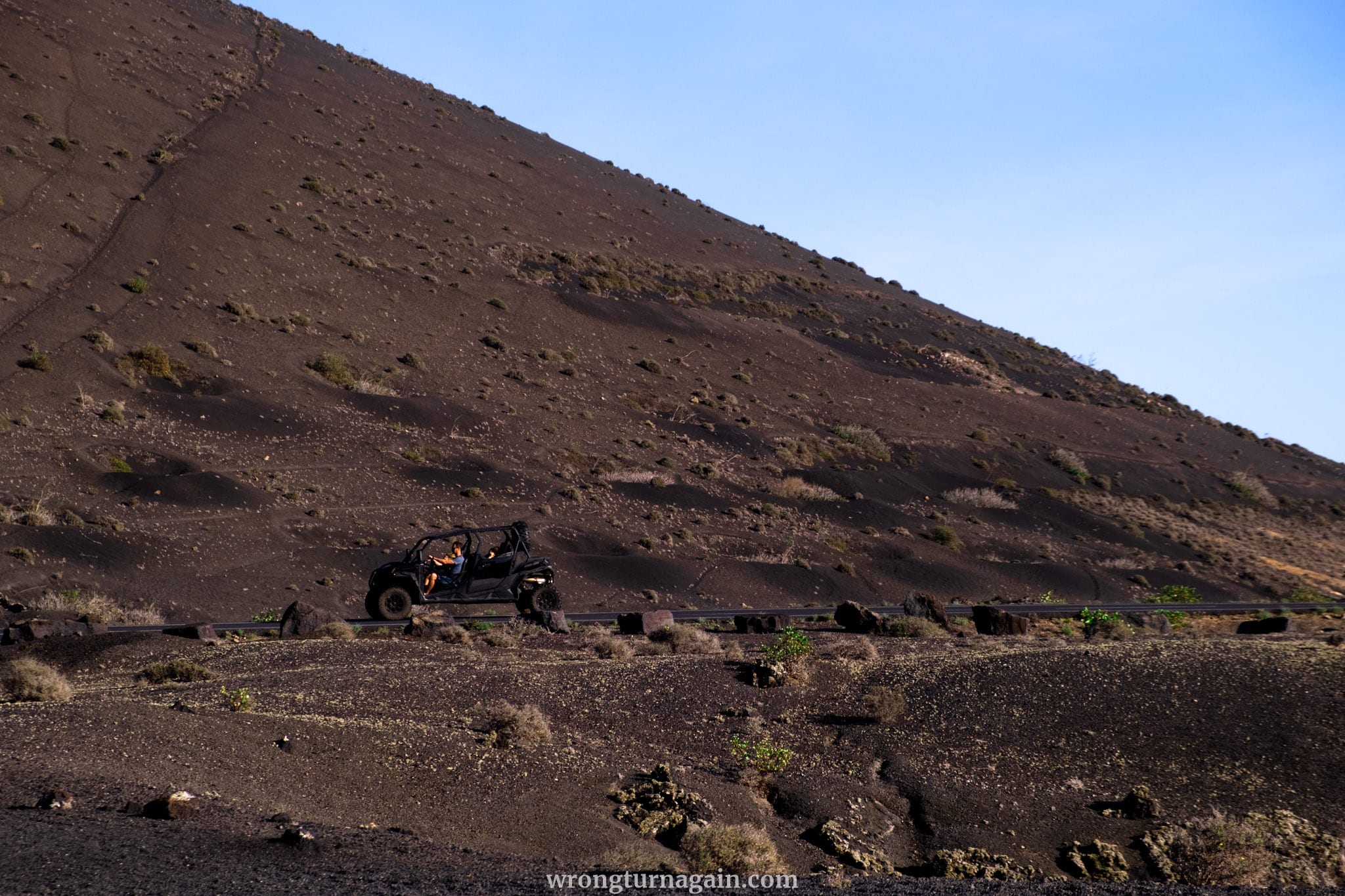

Parking: After about 400m, you’ll find a spacious parking lot on the left side of the road, serving as the trailhead for your hike. Should the primary lot be at capacity, fret not. Continue a bit further along the road, and you’ll stumble upon several smaller parking spots. Additionally, another substantial parking area is situated at the trailhead to Montaña Negra, located approximately 800 meters north on LZ-56.
With parking logistics sorted, you’re poised to begin your journey into the captivating terrain of Caldera de los Cuervos.
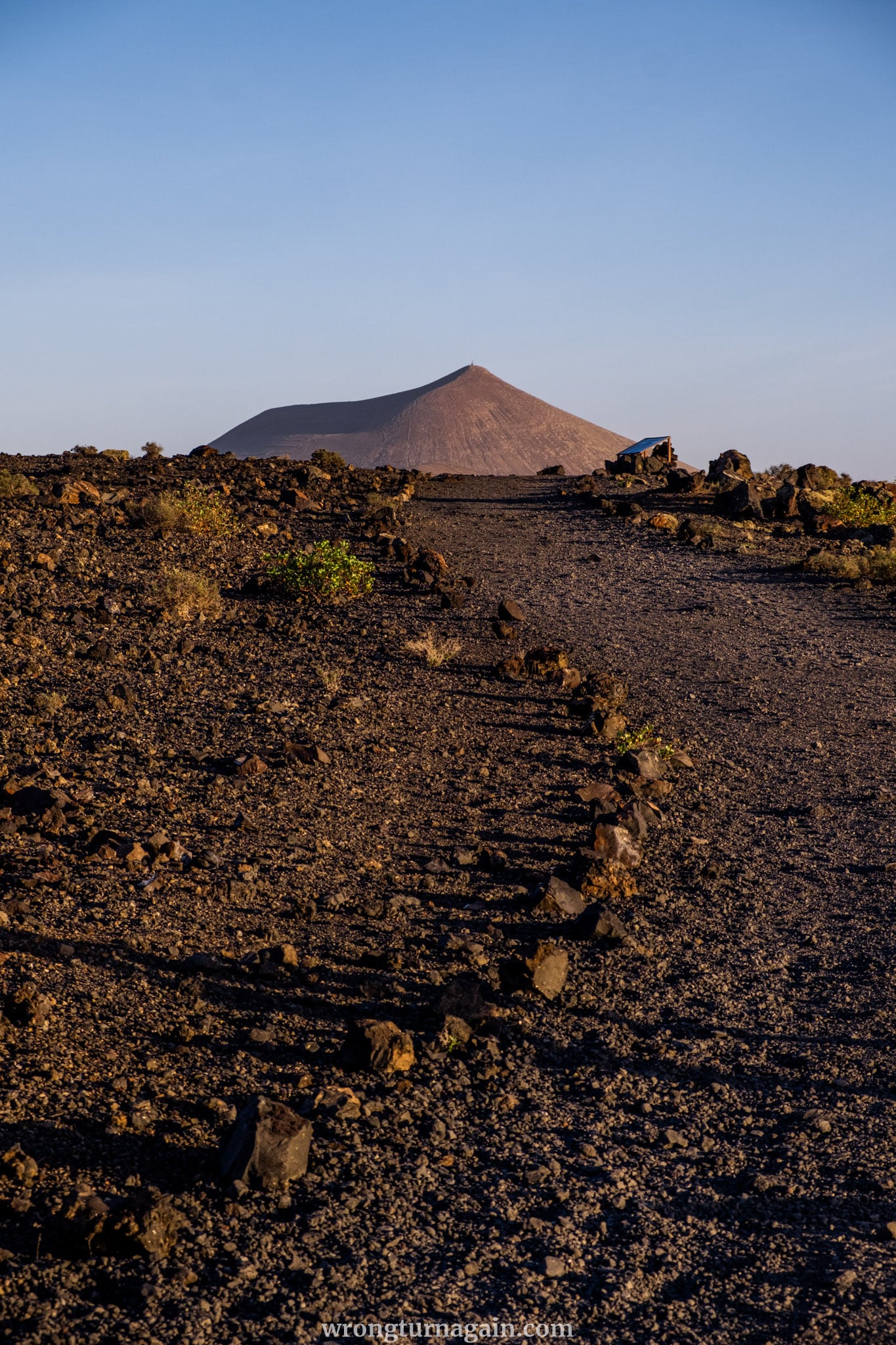
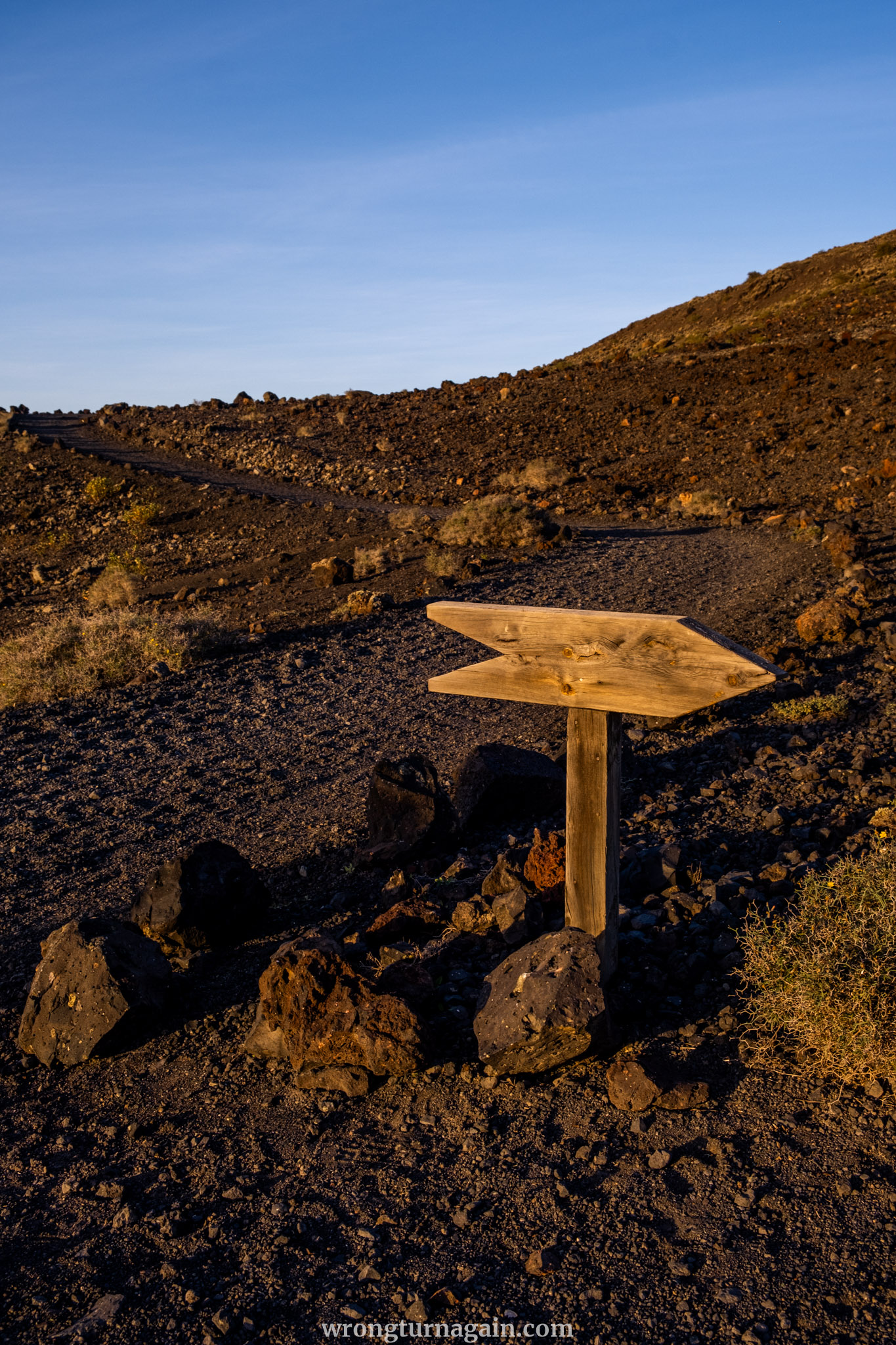
Section 2 – Walking to the base
As you set off from the parking lot, you’ll find yourself on the hiking trail, flanked by rugged lava stones. A mere five minutes into your journey, the trail veers right towards the caldera, marked by the first information board. You’ll notice the tenacious presence of wild tobacco and launaea arborescens, among the sparse vegetation that manages to thrive in this volcanic landscape, primarily adorned with lichen.
Upon reaching the base of the caldera, the trail diverges. Here, the circular route begins, encircling the volcano and offering panoramic views along the way. At some point, this path grants access to the crater’s interior through a designated opening, allowing you to immerse yourself in the heart of this geological marvel.
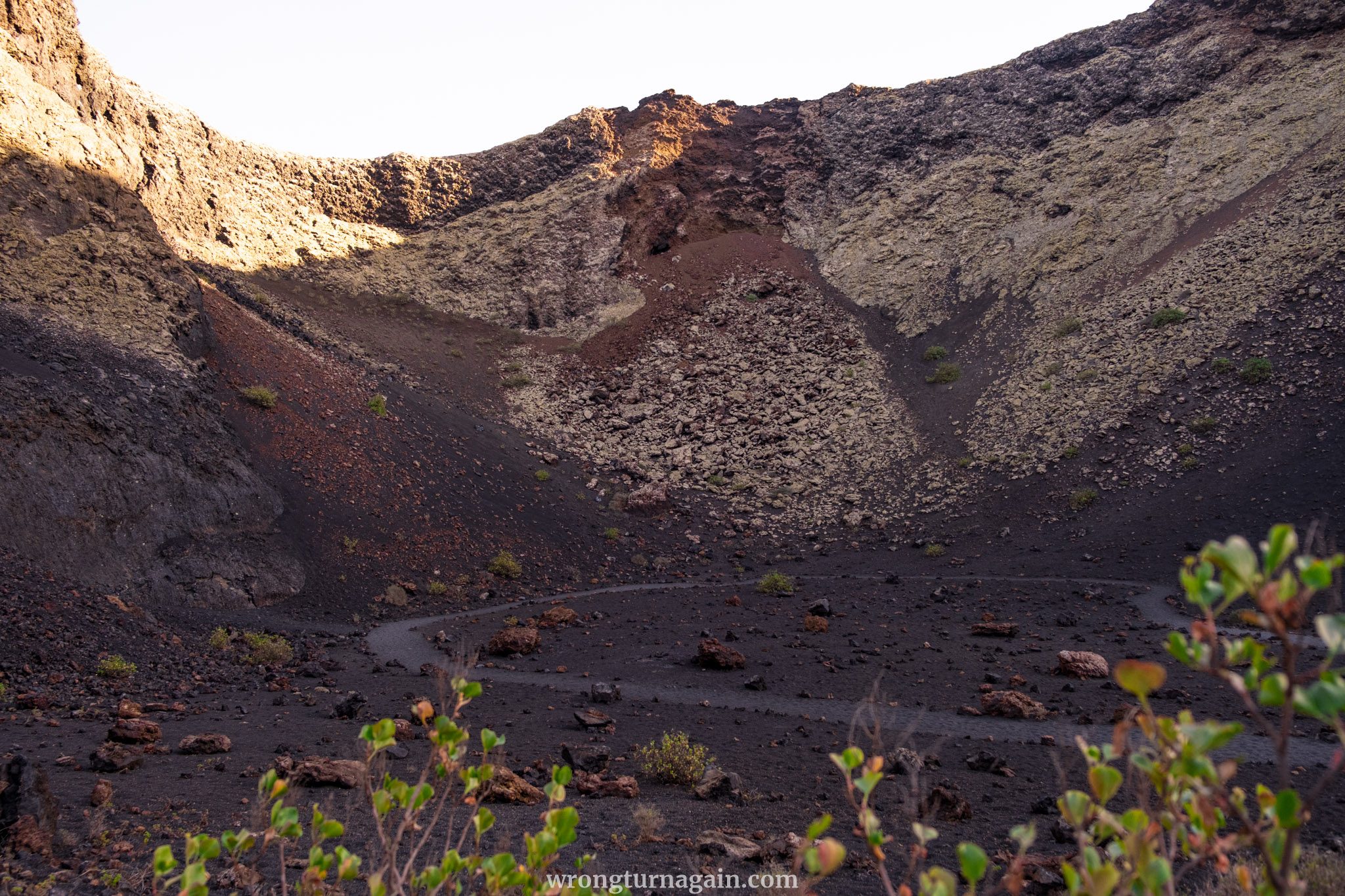
Section 3 – Delving into the Crater
Embarking on your exploration, veer right and begin your anti-clockwise circuit around the crater’s edge. In about three minutes, the vista widens, revealing the crater floor below in the Caldera de los Cuervos.
Descending onto this ancient terrain is effortless. As you tread upon the crater’s main floor, you’ll find yourself enveloped in a landscape shaped by millennia of volcanic activity. Here, carefully laid volcanic gravel pathways beckon exploration, guiding you through the crater.
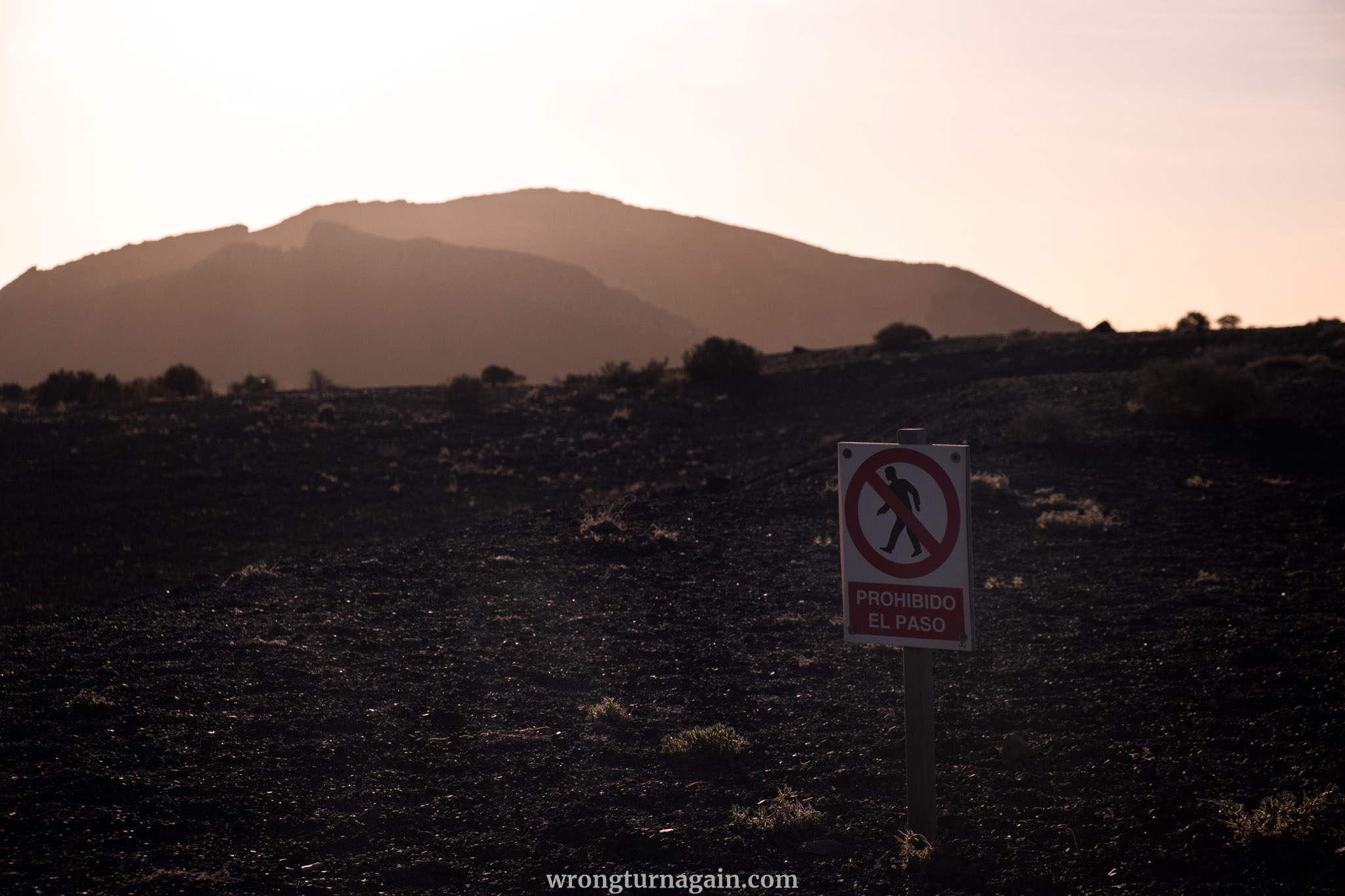
Walking within the confines of an extinct volcano offers a rare opportunity, akin to stepping onto a stage set by nature herself. So, allow yourself to wander, to ponder, and to marvel at the sheer magnificence unfolding before your eyes.

Tip: While a brief 10-minute visit may suffice, take your time to absorb the surreal ambiance that permeates this unique setting. After all, it’s not every day that one has the chance to journey into the heart of an ancient giant!
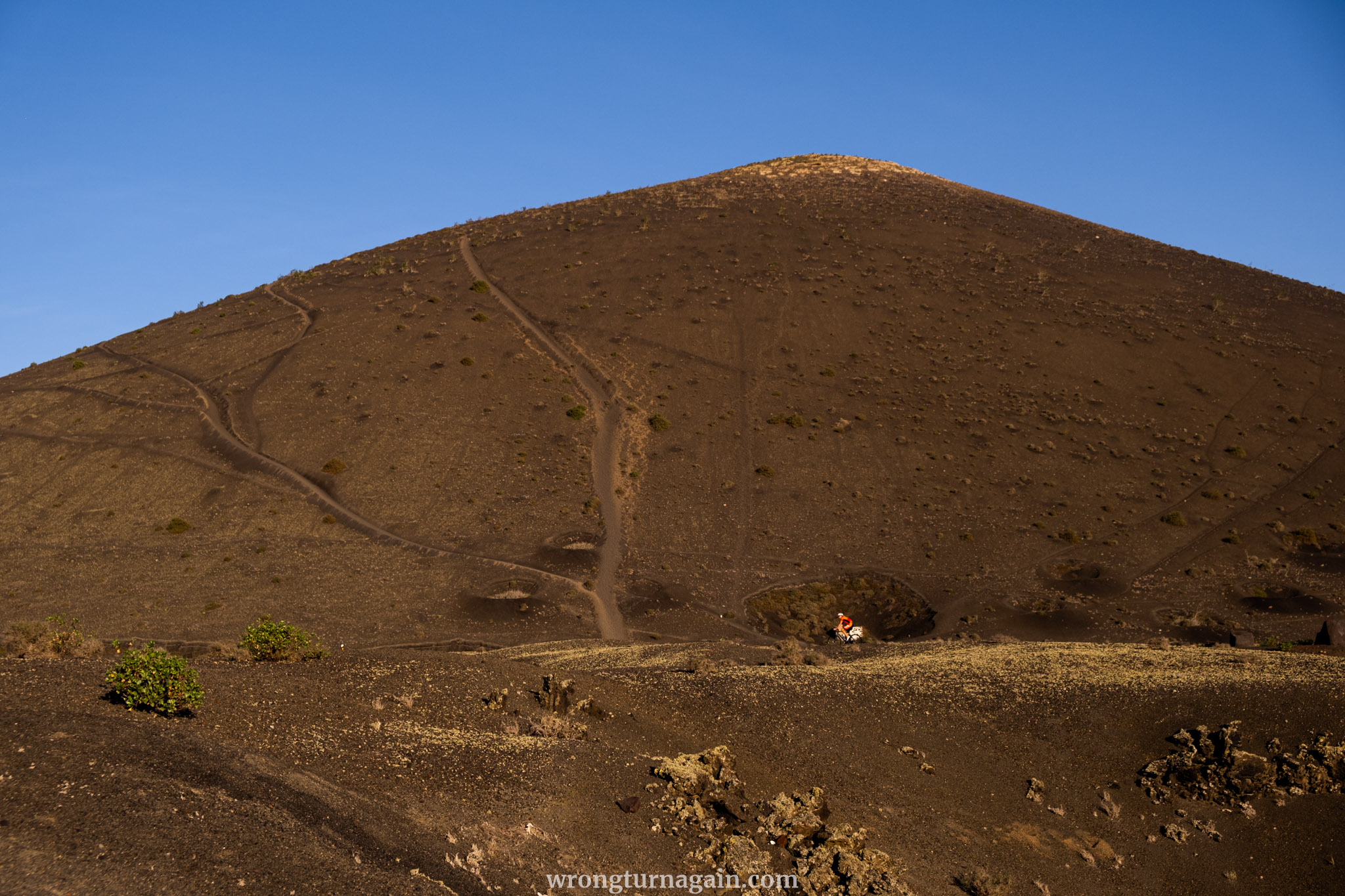
Section 4 – Encircling the Crater
Resuming your journey along the circular route, you’ll find yourself traversing the north side of the volcano, offering breathtaking vistas of the rust-red mountains of fire ahead. Enveloped by a landscape of black volcanic gravel and petrified lava rocks, the contrast is stark and awe-inspiring.
As you continue along the path, you’ll remain steadfast along the foot of the crater, resisting the temptation of diverging trails that lead into the lava fields. Keep your focus on the path ahead, soaking in the rugged beauty that surrounds you.
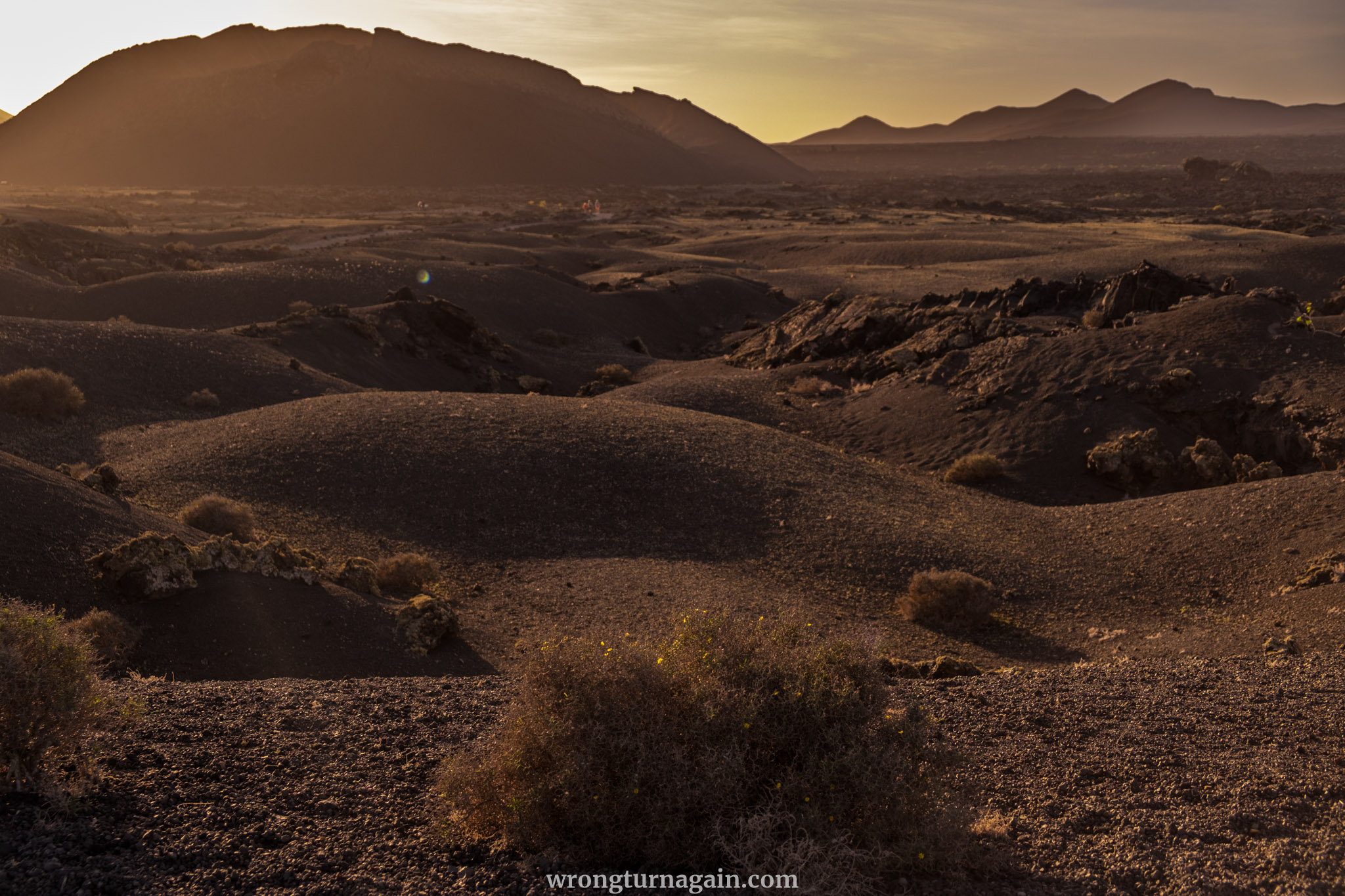
Upon reaching the western tip of the volcano, the path gracefully veers left, guiding you along the southern flank. Along this stretch, you’ll encounter the familiar fork marking the beginning of the circular route. From here, you can retrace your steps via the well-trodden path back to the trailhead.

For those inclined to save the best for last, an alternative option is to follow the route clockwise, savoring the anticipation of the crater’s inner sanctum until the journey’s end.

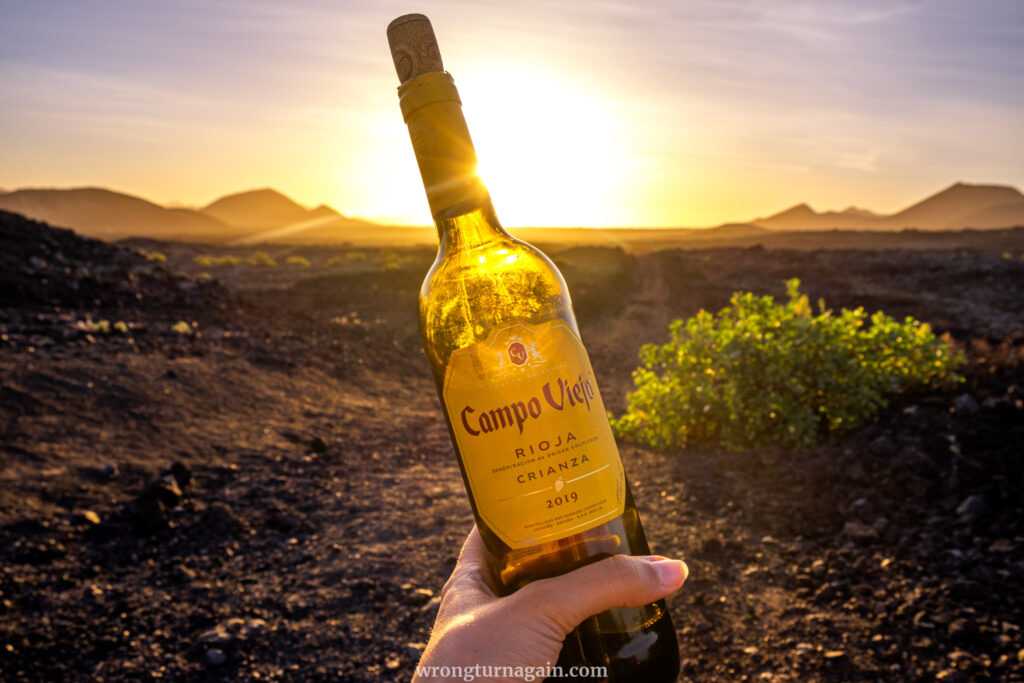
Best Cafes and Restaurants
While there are no dining options in direct proximity to the volcano due to its location in a protected zone, you can travel 8km south to the village of Tías or the same distance north to the village of Tinajo.
Here are some top recommendations:
- La Ermita Tapas Bar, Tías: A charming spot in Tías with delightful tapas offerings and drinks.
- Arepera Bar Millo y Millo, Tías: Known for its arepas, empanadas, and other traditional Colombian dishes, this cozy spot brings a taste of Colombia to the island.
- Cervecera Malpeis, Tinajo: Experience vibrant vibes and great food at this artisan brewery taphouse.
- Majo Picón, Tinajo: Delight in authentic Spanish fare served in a cozy local bar atmosphere; reservations recommended.
- Casa Morelino, Tiagua: Your perfect Italian food getaway in Lanzarote. Reservations are required to secure your spot.

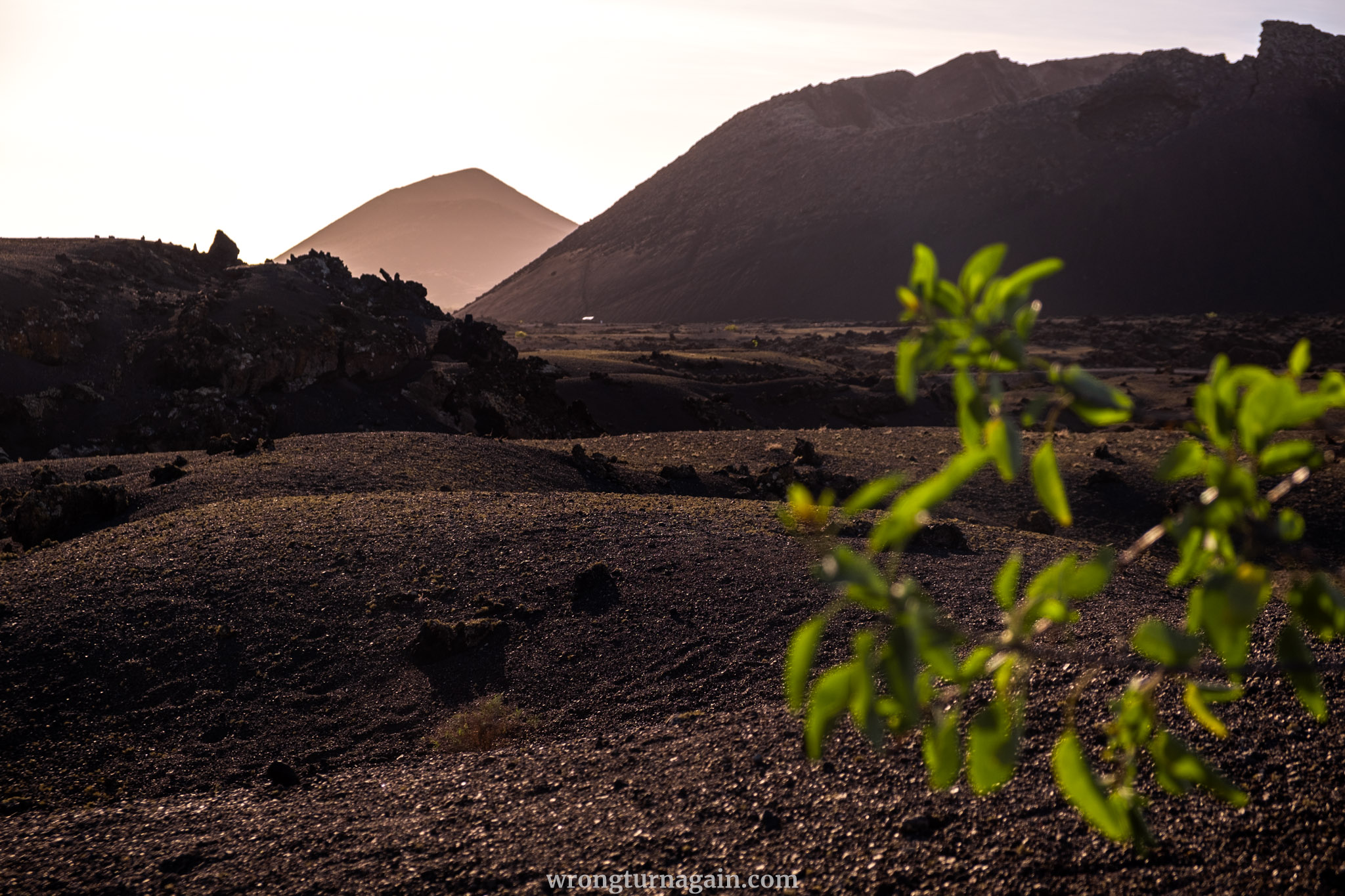
Where to Stay
Lanzarote’s compact size ensures easy access to Los Volcanes Natural Park from anywhere on the island, particularly if you’re traveling by car. However, for those seeking proximity to the volcanoes, there are ideal lodging options to consider.
Staying in Mancha Blanca, Tajaste, or Tiagua ensures you’re as close to the park as possible, allowing for convenient exploration of Caldera de los Cuervos and other volcanic wonders. Alternatively, Yaiza provides an excellent base, strategically positioned midway between the trailhead of your hike and the attractions of the island’s west coast, including the Ruta Litoral and Charco de los Clicos.

Where to Stay: Casita Blanca, Mancha Blanca ~ Hotelito Rural Flor de Timanfaya, Tajaste ~ Casona de Tao, Tiagua > Villa Tagoror, Tiagua ~ La Orilla del Volcán, Yaiza ~ Hotelito La Era B&B, Yaiza
If you’re traveling in a camper van, Famara Beach presents the ideal spot to spend the night and wake up to a majestic view. Despite being a 30-minute drive away, the stunning morning vistas make it worth the journey.

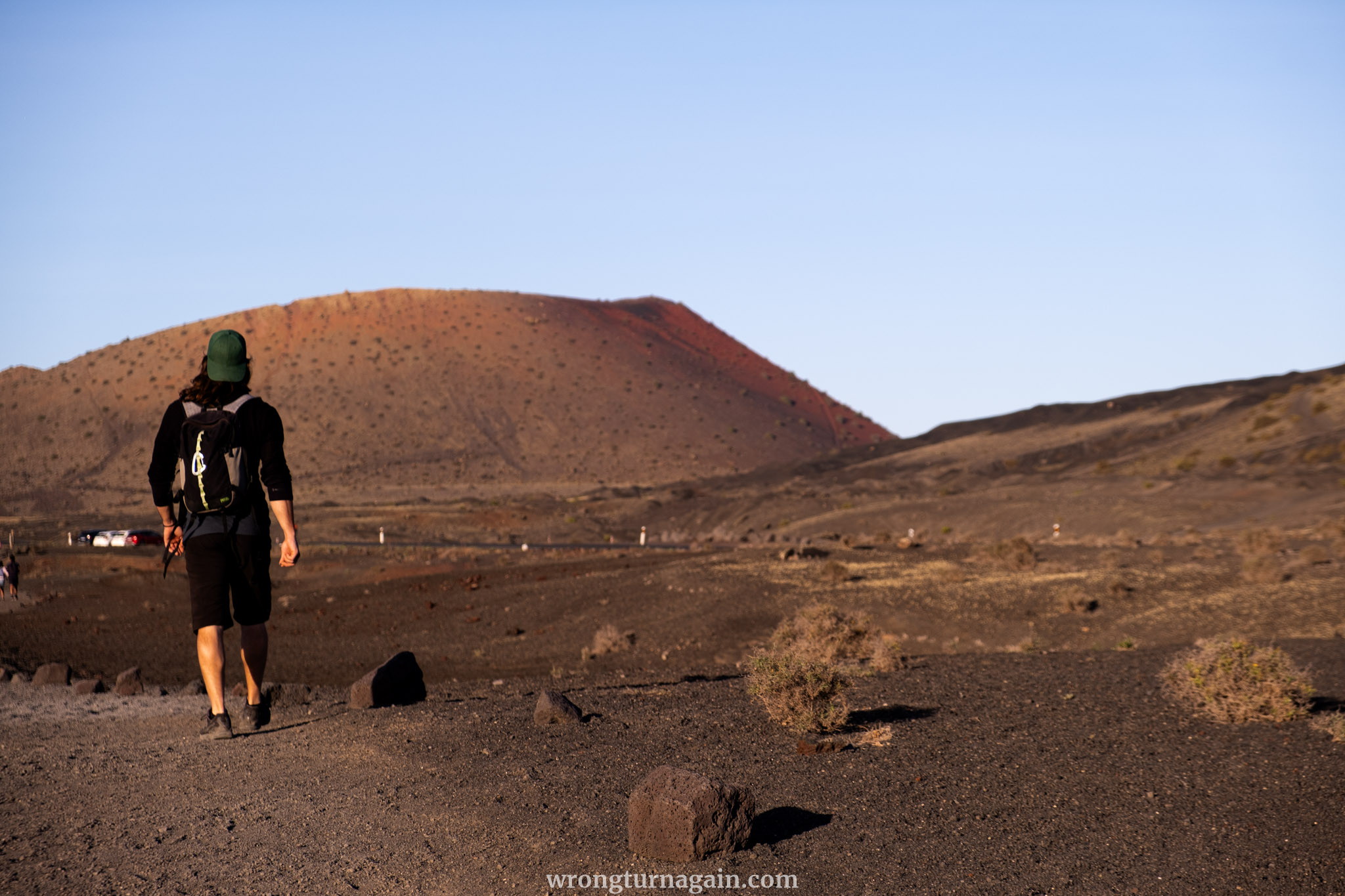
When to Visit
The best time to hike Caldera de los Cuervos is during the cooler months of autumn, winter, and early spring, typically from October to April. During these months, temperatures are milder, making hiking more comfortable, especially considering the exposed terrain and heat from the volcanic landscape.
In contrast to other hikes like Ruta Litoral or Caldera Blanca, Caldera de los Cuervos tends to attract a larger number of tourists. This is partly due to its relatively easy trail and its popularity as a stop on organized day tours. To avoid crowds, aim to visit early in the morning or during sunset hours when the trail is likely to be quieter and you can fully appreciate the serene beauty of the surroundings.

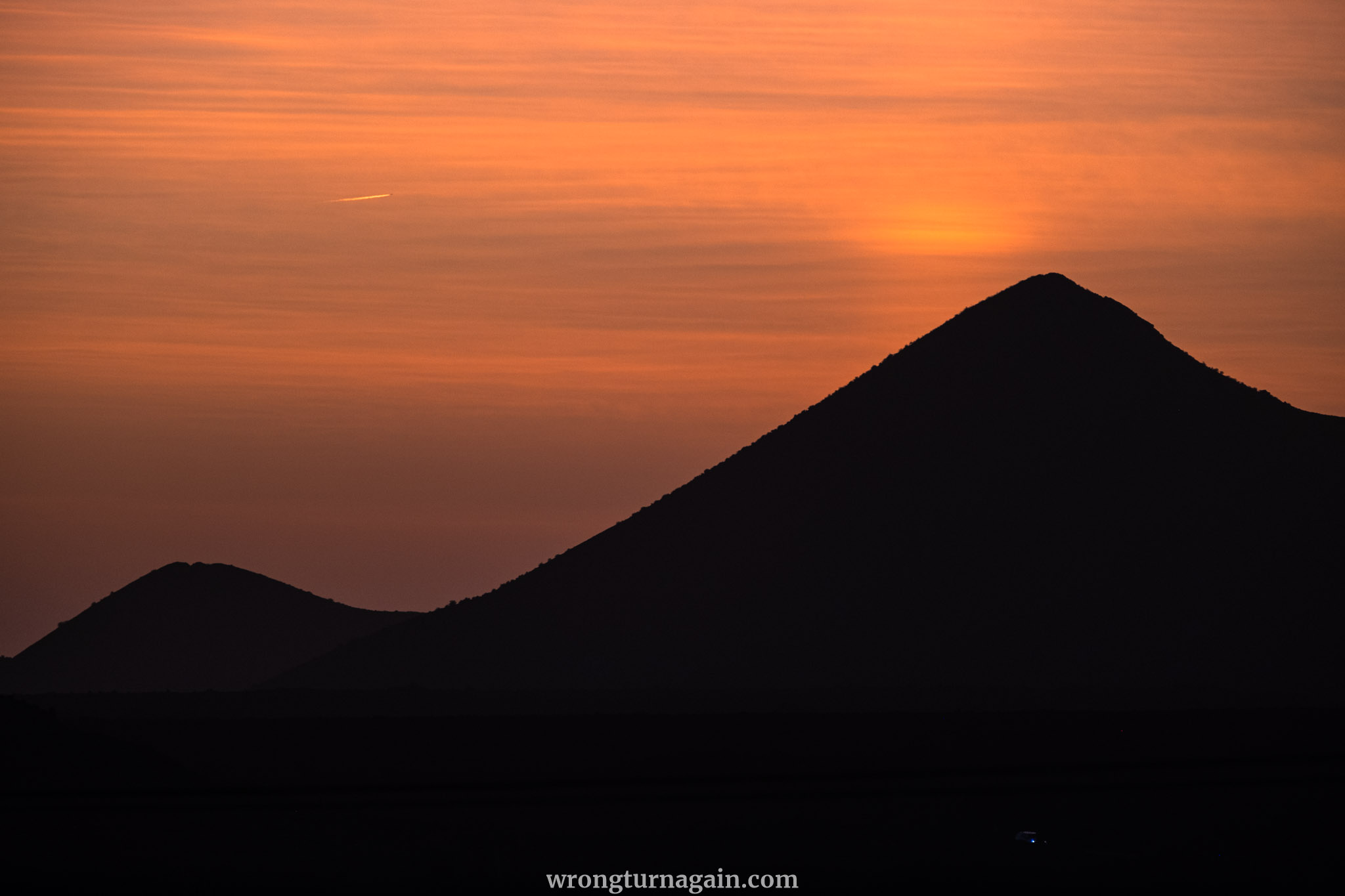
Tips for Hiking Caldera de los Cuervos
Here are a few essential tips to ensure you make the most of your hike while also showing respect for the area:
- Wear sturdy and comfortable walking shoes. The terrain consists of loose stones that can be uneven underfoot.
- Bring an ample supply of water, as there are no refreshment facilities along the trail.
- Leave drones at home. Flying them is prohibited in the area to maintain the tranquility of the surroundings.
- Resist the urge to collect lava stones as souvenirs, preserving the integrity of the landscape.
- Stick to the well-established track, clearly marked with rocks, to minimize impact on the fragile ecosystem.